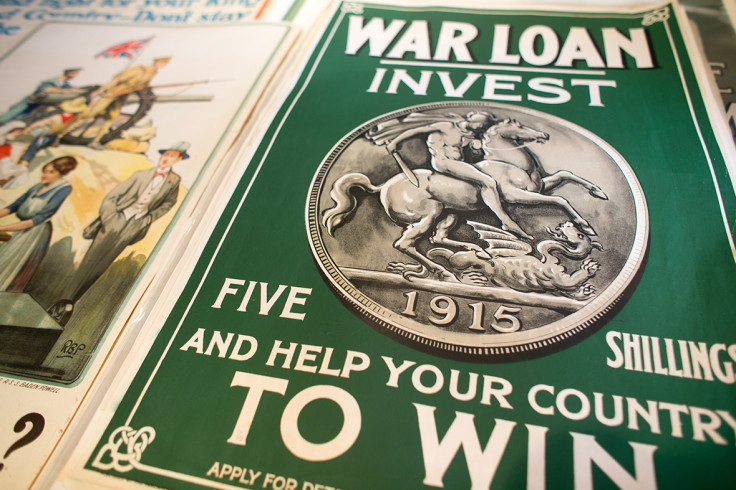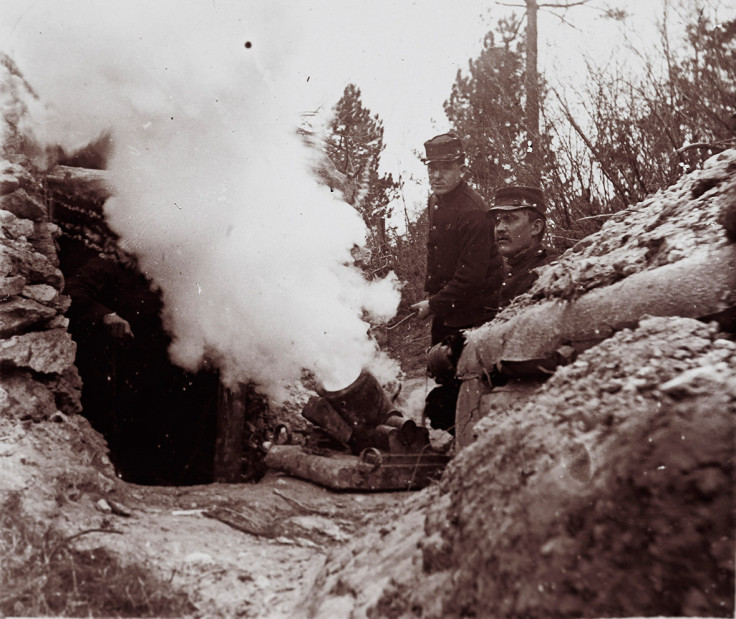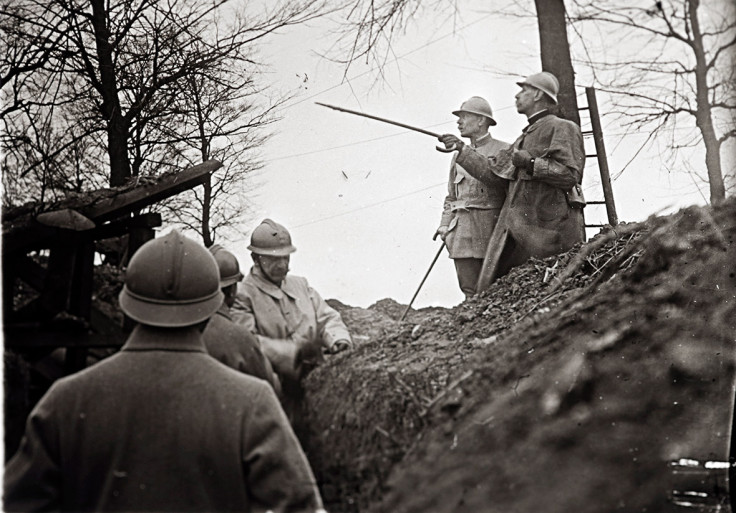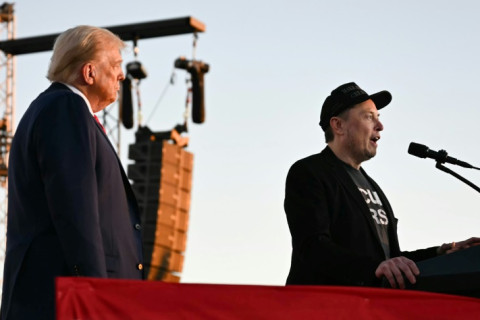WWI 100th Anniversary: How Global Trade Changed Forever

We may sneer at the opulent costumes or despair at the poor excuse for democracy that marked the early 20th century. But today's society has more in common with that of pre-World War I than we may think.
Our own millennials are often viewed as the first generation of a globalised world, but the progress made in the 50 years prior to WWI, in many ways, acted as a harbinger to our own digitally enhanced age.
German steel giants investing heavily in French iron ore production sites in Normandy; 3.4 million migrant workers labouring in Germany's agricultural sectors and the coalfields of the Ruhr Valley; rail networks expanding across Europe and further east ‒ all helped the great "annihilation of distance".
It brought the world and its people closer together, eliminating tariffs and other barriers to trade along the way. Exports reaching record levels year-on-year, with trade accounting for a higher level of GDP than ever before.
It all has a familiar ring to it, but the outbreak of WWI was like somebody pressing the reset button on the rapidly internationalising world of trade.
The historian Niall Ferguson wrote that "the sinking of the Lusitania also symbolised the end of the first age of globalisation". And while not everyone agrees on the exact date, most acknowledge that WWI radically changed the course of global trade for decades to come.
Some of the changes were temporary, others permanent. Some are still being felt today.
Many can be directly traced back to the Great War – such as the Russian Revolution of 1917 which almost certainly wouldn't have occurred independently (at least not so early), others, such as the decline of imperial France and Britain, were already underway, but were expedited by the events of 1914.
The Decline of Western Europe
The world's most dominant economies pre-WWI were in Western Europe.
Many enjoyed relatively free trade before the outbreak, after which trade as a share of GDP fell away. It didn't return to its 1914 levels until the 1960s.
"One of the lasting changes was that Europe's volume of merchandise trade didn't recover. There was permanent damage to the European share of world trade," says Professor David Stevenson an historian at London School of Economics, specialising in WWI.

The collapse of the Habsburg Empire in Austria-Hungary led to the demise of one of the world's first free trade areas: concessions over tariffs which had been won over decades were lost. The states established subsequently, from Czechoslovakia, Hungary and Yugoslavia, increased trade tariffs, leading to the balkanisation of European trade.
Further west, Britain had for decades been the world's dominant industrial nation, but between 1870 and 1913 its share of global industrial production had fallen from 32% to 9%, with the US's share rising from 23% to 42%, according to online archive Macrohistory.
Germany had also overtaken Britain on many economic metrics, including manufacturing: by 1914, Germany was producing twice as much steel as Britain.
"They didn't do GDP that far back, but most would estimate that Germany had overtaken Britain on that front too," Stevenson says.
WWI slammed the squealing brakes on Germany's ascendancy, with the war effort, followed by the crippling reparations regime having a disastrous impact on its economy. But otherwise, the war acted as a propeller for a shift in the balance of power.
The Rise of a Dual System
The US in 1914 was the world's most indebted nation (as, indeed, it is today), with Western European nations pumping fortunes into nascent US rail network and industries. But by the time the war finished, the US was the world's biggest creditor.
The war saw Allied countries import vast amounts of raw materials, such as oil, steel and wheat, from America, which they paid for by selling the debt they held in the US to American buyers.

Simultaneously, Western Europe was borrowing from private US lenders and once the US entered the war, from the Federal Reserve.
Through the 1920s, the US confirmed its place as the world's dominant trading economy, taking its place at the top of the exports table and investing directly in Europe too. The Ford plant in Dagenham, Essex, was the motor giant's first big European subsidiary investment.
The US, which had previously restricted its overseas investment to Latin America, begun to sniff opportunities further afield.
The US's decision to force its European counterparts to honour their debts arguably stymied its subsequent growth pattern and interrupted its astronomical rise. To some eyes, it heightened the impact of the Great Depression.
The Smoot-Hawley Tariff Act of 1930 raised US tariffs to record levels as America's self-prescribed isolation cut it off from international markets.
But the seeds had been sewn: along with events in Russia, the two polarised pillars of economics that defined international trade over the course of the 20<sup>th century were galvanised by WWI.
"Both the Russian and Ottoman Empires were dying," says Ed Lotterman, an American economic historian. "But the trauma of the war caused change in Russia of a particular type that set the pattern for a century. I don't think the Bolsheviks would have come to power in Russia without all the socioeconomic and political destruction of the war. Then you're locked into something for decades."
Immediate economic socialisation ensued, with Russia renouncing its international debt and closing itself off from the outside world, in trade terms.
This had a huge impact on international trade: the foundations for a polarised trading world, which took root in earnest post-WWII, when the utilitarianism of the Soviet Union and the freewheeling capitalism of the US fought it out for global dominance.
"Nato and the Marshall Plan wouldn't have flown if it weren't for fear of the Russians," says Lotterman. "If there was no threat of Communism in Europe, the US would've been much more likely to have returned to isolation after WWII."

WWI's Clear Lineage
If WWI achieved anything, it was to prove that however stable things may seem, we're only ever a gunshot away from catastrophe.
In the 1900s, Germany's desire for an empire of its own wasn't appreciated by the French, British or Americans. It will be familiar to anyone who watches the disputes over remote Asian islands with amusement, or who scoffs at the prospect of escalation in Russia and Ukraine.
"We look at those as silly little things, not realising how deeply some of those national emotions can be exploited and can be fanned by events. There is very much a status quo bias in behavioural economics: we tend to have an irrational trust that because we've been at peace, war couldn't break out. You could see that in the 20 years prior to WWI. There hadn't been a European-wide war since Waterloo. But there was a feeling that it couldn't happen again," says Lotterman.
"I think the people that are on top in the US, or Western Europe don't understand the depths of pride and the feeling of being humiliated by stronger powers."
Events in Russia have proven that the watertight trading ship the west thought it was steering wasn't as secure as it thought.
Lotterman doesn't mean to be sensationalist, but the foreboding in his comments is plain to see.
© Copyright IBTimes 2024. All rights reserved.







